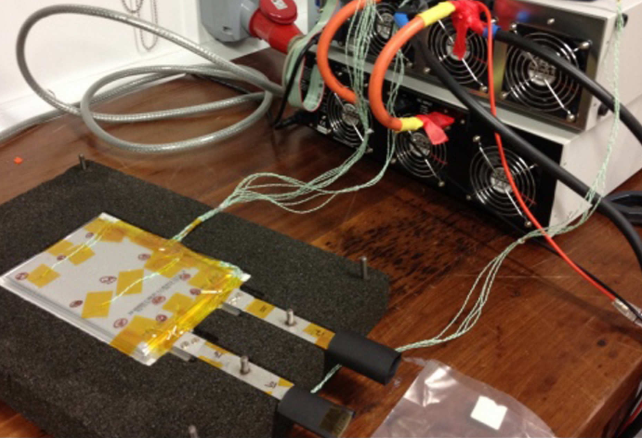The Consortium for Battery Innovation (CBI) has published a technology roadmap setting its research and innovation targets for the next three years in advanced lead battery electro-chemical science.

With the support of its EU and worldwide battery company members, the CBI has set research objectives to increase the cycle life of advanced lead batteries by up to five times. This in light of the European Commission predicting a tenfold increase in demand for EU battery energy storage by 2050.
The plan includes improving dynamic charge acceptance – the energy stored in a battery when a car brakes – in micro and mild-hybrid cars, delivering much improved carbon and fuel savings. For start-stop and micro-hybrid vehicles, fuel consumption is reduced by between 5-10% as a result of using advanced lead battery technology.
And batteries supporting local electricity grids and renewable energy projects are aiming for longer lifetimes with improved battery cycle life, helping to significantly reduce operating costs. By lowering operating costs, a key parameter for utility and renewable energy installations, this means a greater number of energy storage projects across the globe providing reliable and affordable electricity.
The Consortium has commissioned independent market assessments which predict that worldwide demand for battery energy storage will jump to 400,000MWh in 2025, compared with 100,000 in 2015. Also, while lithium batteries' share of the market will grow through the increase in electric vehicles, demand for all battery technologies will continue to rise as countries pursue low carbon and electrification policies.
Dr Alistair Davidson, director of the Consortium for Battery Innovation, said: “We’re in the midst of a revolution in battery technologies as governments look to accelerate their move to low carbon energy sources. We need a range of high-performance batteries for different products and applications to meet this growing trend.
“Our technology innovation plan looms at a short-term boost in battery performance. But we’re also focusing on the next big leap in advanced batteries over the next decade as new forms of lead battery technology come to market.”
Advanced lead batteries already support the transition to electric vehicles through micro and mild-hybrid cars. Virtually all electric vehicles use lead batteries for essential back-up and safety functions. CBI’s technology roadmap sets out how the industry’s innovation programme is setting research goals to help batteries improve further.
Demand for batteries supporting electricity grids and renewables is driving the need for longer-lasting, safe, and reliable high-performance batteries. The Consortium’s research focuses on creating batteries which are longer-lasting and more economical than before.
Dr Christian Rosenkranz, Vice President Industry and Governmental Relations EMEA at Clarios and Vice-Chairman of CBI, said: “The reality is that all countries seeking to achieve their low carbon goals will require a range of battery technologies delivering high quality storage at a greater scale than we’ve ever seen before. And the Consortium is helping to deliver the design that will ultimately be the power behind the low carbon future we are all seeking to achieve.”
A significant portion of the Consortium’s members and partners operate in Europe, including some of the most important players in Europe’s lead battery value chain, from battery manufacturers Clarios, EnerSys, Exide, Hoppecke, Banner and Moll, to industry suppliers Hammond, Daramic and TBS Engineering.
The Consortium also partners with prestigious research institutes and universities at the forefront of lead battery research including Fraunhofer ISC, ISEA RWTH Aachen, Bulgarian Academy of Sciences and Technical University Berlin.
The European lead battery industry has launched an information campaign called Charge the Future, which aims to improve awareness of advanced lead batteries and their capabilities.